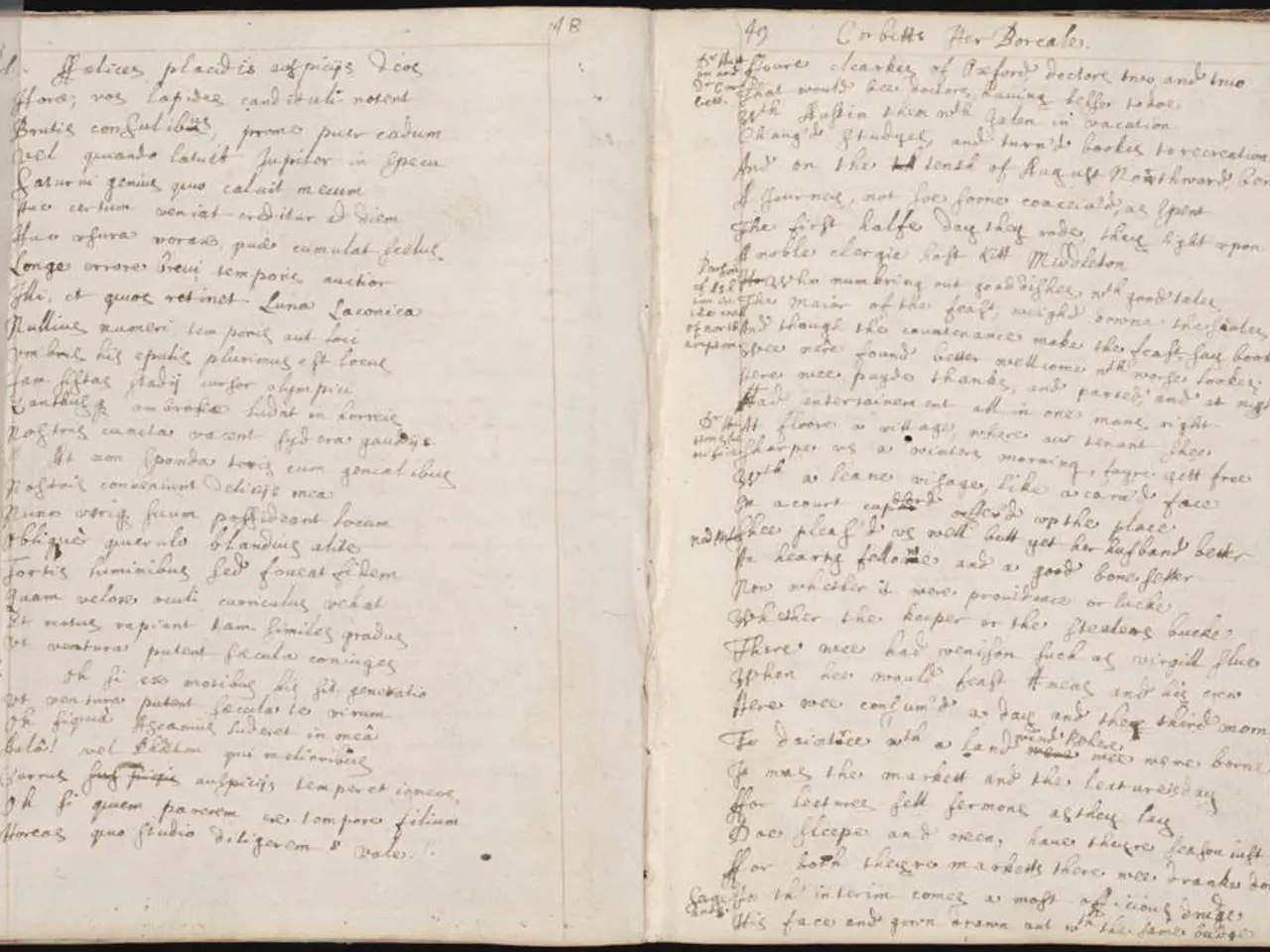Open-book assessments for grade 9 students under CBSE's curriculum will be implemented starting from the academic year 2026-27 - Here's a rundown of the key details.
The Central Board of Secondary Education (CBSE) has announced that it will introduce open-book assessments for Class 9 students starting from the 2026-27 academic year. This move aims to reduce exam stress, make learning more practical, and shift the focus from rote memorisation to a deeper understanding of concepts.
The decision to implement open-book assessments is in line with the National Education Policy (NEP) 2020, which emphasises competency-based learning over memorisation. Open-book tests allow students to use textbooks, class notes, or library books while answering questions, encouraging them to apply their knowledge in real-life situations.
The CBSE has previously tried a similar system, the Open Text Based Assessment (OTBA), in 2014. However, it was discontinued in 2017-18 due to not significantly improving students' critical abilities. This time around, the CBSE plans to include open-book tests in three written assessments each term for subjects such as languages, mathematics, science, and social science.
The benefits of open-book assessments (OBAs) in CBSE education include shifting focus from rote memorisation to deeper understanding, analytical reasoning, critical thinking, and application of knowledge. OBAs reduce exam stress by allowing use of approved reference materials, encourage problem-solving skills akin to professional scenarios, and foster lifelong learning habits.
However, the implementation of OBAs comes with challenges. Students will need to prepare differently, focusing on conceptual understanding and the ability to find and apply relevant information rather than simply recalling facts. Designing application-based questions demands substantial pedagogical shifts and teacher training. Some students, particularly in rural or under-resourced areas, may lack access to quality reference materials.
Teachers believe that open-book assessments could encourage critical thinking among students, but they also acknowledge the need for proper guidance to help students use reference materials effectively. The pilot study, approved in December 2023, tested Classes 9 to 12, and the move to introduce open-book tests is not expected to be compulsory, but schools will be encouraged to adopt it if they have the capacity.
The pilot study for open-book assessments was based on topics already in the syllabus and did not require extra reading. Student scores in the pilot study ranged between 12% and 47%. Despite the variation in scores, the proposal for open-book assessments was approved in June by the CBSE's Governing Body.
The CBSE will prepare a framework for schools that want to introduce open-book tests in internal Class 9 exams. The main goal of the open-book tests is to test understanding, problem-solving, and analytical skills, and the success of this initiative hinges on effective pedagogy, teacher training, and equitable resource access.
[1] National Education Policy (NEP) 2020 [2] National Curriculum Framework for School Education (NCFSE) [3] Open Text Based Assessment (OTBA) [4] Competency-based learning [5] Open-book assessments (OBAs)
- The National Education Policy (NEP) 2020 promotes competency-based learning, which seeks to move away from rote memorization and towards practical application, mirroring the focus of open-book assessments (OBAs).
- Open-book assessments, such as those to be introduced by the Central Board of Secondary Education (CBSE), enable students to utilize textbooks, class notes, or library books while answering questions, fostering an environment that encourages the application of knowledge in real-life situations.
- In the realm of investment in education and self-development, online education platforms could prove beneficial for students seeking to learn and adapt to the new format of open-book assessments (OBAs), which focus on deeper understanding, analytical reasoning, and critical thinking.
- As the Defi (decentralized finance) market expands, it might introduce new avenues for financing educational initiatives, such as the development of innovative learning materials or teacher training, essential for successfully implementing open-book assessments (OBAs) and fostering a generation of critical thinkers.




